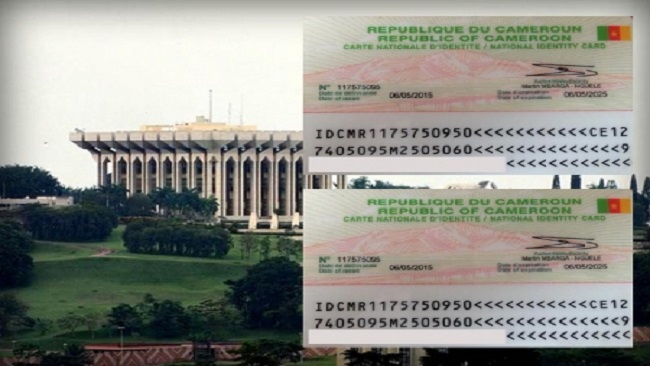Biya regime introduces legislation to allow biometric visas, residence permits
The plan by the government of Cameroon to put in place a system for the issuance of biometric visas and other ID documents for aliens in the country has seen a major leap forward following the introduction of a legislative framework.
This is part of a decree the country’s President Paul Biya signed recently which lays down conditions for the implementation of a 1997 law which defines conditions for the entry, stay and exit of foreign nationals in Cameroon.
Going by the law, the biometric visa shall be a highly secured document, in the form of a self-adhesive insert, to be affixed to the passport of the holder whose request for the visa has been approved following due process of application.
It adds that the biometric visa, which is compliant with requirements of the International Civil Aviation Organization (ICAO), shall have an electronic chip containing the digitized photograph of the holder concerned, two fingerprints or an iris scan.
Encoded with this biometric information, the visa has other high security features which make duplication difficult.
According to the President’s decree, application for all types of visa to Cameroon shall be done exclusively online via a website dedicated for that purpose, and those whose visa application is granted shall be issued an electronic authorization with a QR code.
When an alien presents an online visa authorization at any border post of Cameroon, immigration officials shall proceed with the process of affixing the pre-arranged visa to their passport, by completing four processes which include verifying the documents submitted for the issuance of the visa as well as the biometric elements to verify the identity of the holder.
Meanwhile, the decree also introduces biometric residence permits, residence cards and refugee cards.
It notes that the residence permit, residence card, and refugee card shall be highly secure digital, biometric and personalized documents with an electronic chip containing the owners’ digitized photograph.
The law also mentions that one of the requirements for the issuance of a residence permit and residence card is the presentation of an ID document which shows the applicant’s height, scanned signature and information on parents (a common requirement in Francophone bureaucracy).
In the case of refugee cards, issuance requires the presentation of an ID document issued by the United Nations High Commissioner for Refugees and a refugee certificate issued by Cameroon’s foreign ministry.
Last year, Cameroon’s foreign ministry contracted a Côte d’Ivoire-based firm to provide the technology for the production and issuance of biometric visas as well as ID documents for aliens with various forms of stay in the country.
With the legal framework now in place, the issuance process is expected to launch.
Source: Biometricupdate





